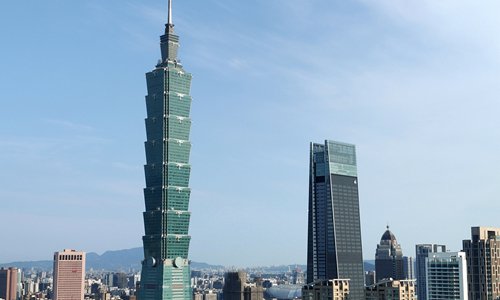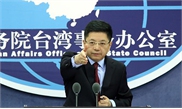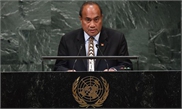
Taipei skyline Photo: VCG
Solomon Islands and Kiribati severed "diplomatic ties" with the island of Taiwan within one week and decided to adhere to the one-China principle ever after. This has tremendously impacted Taiwan. The island has lost seven "diplomatic allies" since Tsai Ing-wen took office. It is high time for Taiwan authorities to seriously reflect on their cross-Straits policies and to recognize and accept the reality of international and cross-Straits relations.
First, the one-China principle can never be shaken. The number of "diplomatic allies" of Taiwan has decreased to 15 by now. Additionally, Taiwan has been excluded from multilateral events such as the World Health Assembly and the General Assembly of the International Civil Aviation Organization over the past three years. Although Taiwan authorities are seeking to realize their ambition of "joining the UN," it is well known that this is an impossible task.
Second, Taiwan gets no more chance or space to exercise "dollar diplomacy." Taiwan has tried to maintain its "diplomatic allies" circle by "dollar diplomacy."
Before the announced break-up of "diplomatic relations" between Solomon Islands and Taiwan, it was reported that Taiwan has pledged a fund to help the Solomon Islands. "Dollar diplomacy" is against international trend and the interests of the concerned parties.
With the rise of the mainland, China's international influence is expanding by the day and no countries or regions can afford not developing relations with the mainland.
The island of Taiwan is of little use politically and economically to Solomon Islands; yet on the contrary, Beijing can play a key role in safeguarding Solomon Islands' interests under multilateral mechanisms such as the UN, the Group of 77 and China, etc. In addition, Solomon Islands can also share the dividends of China's rise and development. The China-proposed Belt and Road Initiative (BRI) and the China-South Pacific Forum have helped augment national interest of the countries concerned. The Taiwan island is unable to do so.
Third, support that the US and other Western countries offered to the island of Taiwan does not work. At present, the Tsai authorities take advantage of the strategic competition between China and the US in an attempt to use US support to keep its "diplomatic allies."
Despite US pressure, the Solomon Islands still made the right decision in keeping with its own national interests to sever "diplomatic relations" with Taiwan. It demonstrates that the so-called US support for Taiwan does not work. In recent years, with a relative decline in US strength and status, especially after Trump promoted the "America First" policy, the strategic influence and credibility of the US have been severely damaged.
Finally, to improve cross-Straits relations is Taiwan's only choice. During the eight years of Kuomintang leader Ma Ying-jeou's rule, Taiwan only lost one "diplomatic ally."
The fundamental reason is that Ma recognizes the 1992 Consensus, putting a priority on cross-Straits relations, and there had been basic mutual trust across the Straits then.
For the moment, it seems that the Tsai authorities have not learned any lesson from it, still sticking to "Taiwan independence" and "dollar diplomacy." However, against the increasingly obvious comparison in strength between China and the US and between Taiwan and the mainland, there might be a day when Taiwan loses all its "diplomatic allies" if it refuses to change.
The author is an associate research fellow of the Institute of Taiwan Studies, Chinese Academy of Social Sciences. opinion@globaltimes.com.cn


